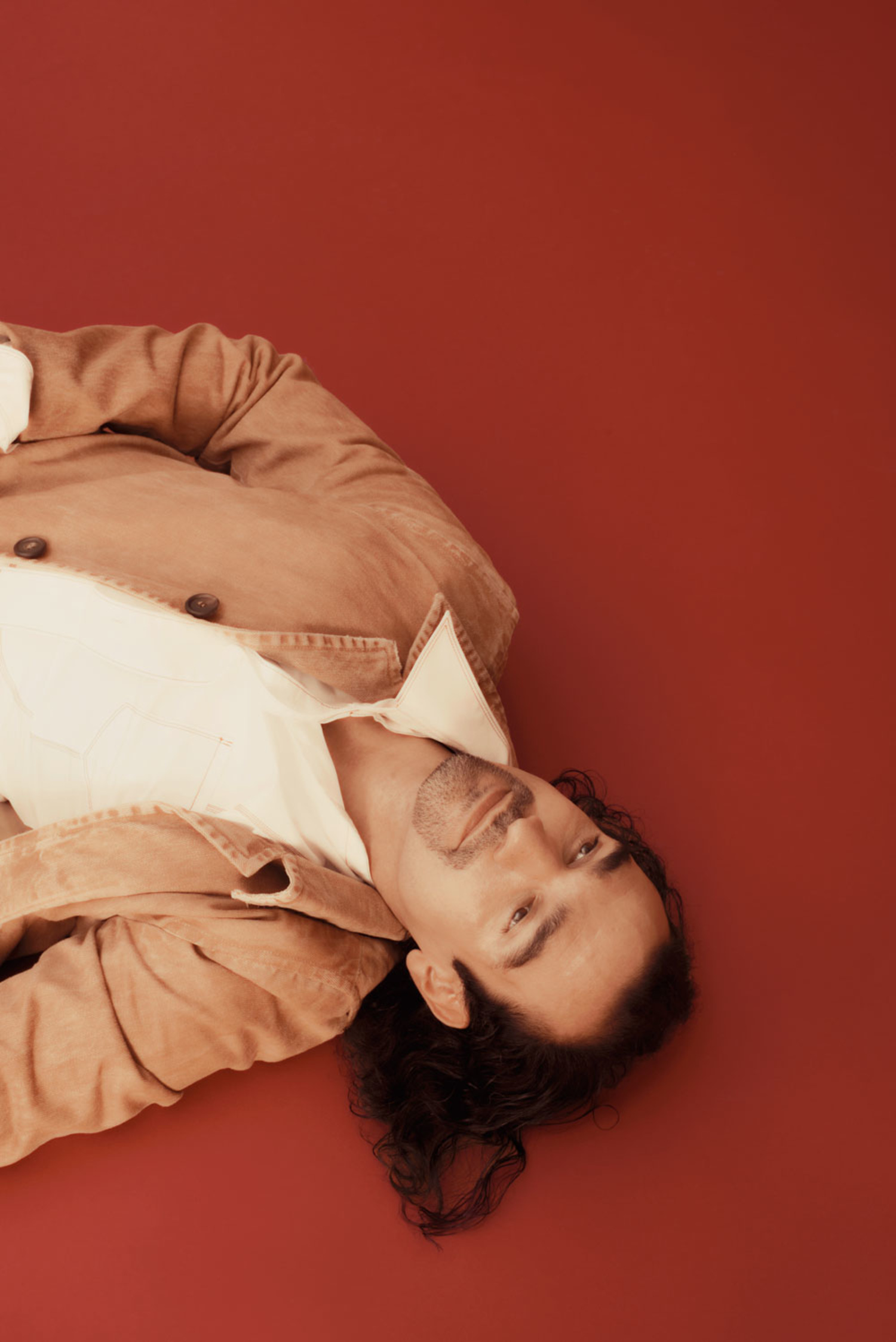Javi Muñoz
Interview by Scott Bixby, Photography by Matthew Tammaro,
Styled by Paul Frederick, Grooming by Amber Amos
“Hardly anyone calls me Javier.” He’s Hamilton’s new Hamilton, the title role in the paradigm-shifting Broadway musical that has transcended its medium to become what everyone, from theater critics to the First Lady to Beyoncé, has deemed one of the greatest artistic achievements of the modern age. The show has garnered a Pulitzer Prize, a record-setting number of Tony nominations, stratospheric-bordering-on-intergalactic ticket sales, and, in the year of #OscarsSoWhite, featured a cast almost entirely comprising of actors of color.
“No pressure!” he joked.
He grew up in the Linden Houses projects of Brooklyn, the youngest of four brothers in one of the city’s roughest neighborhoods during the opening salvo of the crack epidemic. For a shy kid with an artistic sensibility, East New York was a dangerous place to be.
“It was very violent and very aggressive, so I didn't have a lot of friends in the neighborhood or at school,” Javi said. Being Puerto Rican didn’t help. “I was too ‘white’ for my neighborhood, and I was too ‘dark’ for where I went to school.”
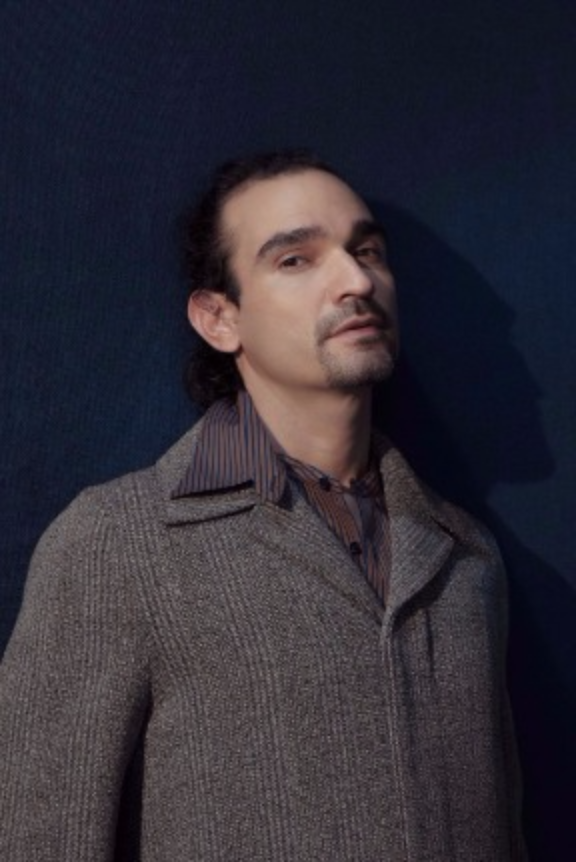
ANGELICA
I haven’t done but
Just you wait, just you wait
HAMILTON
Where’s your fam’ly from?
Unimportant. There’s a million things
A self-described “unapologetic nerd-geekman-one-hundred-percent extraordinaire” who spends his time offstage live-tweeting genre shows like Game of Thrones and Stranger Things, Javi chalks up his gravitation toward storytelling to the escapism that beat in the heart of a lonely kid in a tough neighborhood.
“I was fat as a kid,” Javi said. “I spent a lot of time alone, so I had space to let my imagination grow. That's really where the artistic and creative parts were born, playing with my toys, watching TV, or writing stories that I wanted to make into movies and cartoons and stuff.”
Javi’s creative streak found a home in a performing arts at Edward R. Murrow High School in Midwood, Brooklyn, a magnet school where he initially flirted with studying astrophysics before taking up theater, “the first community I ever felt a part of, socially.” He called the not-entirely-obvious transition between the two disciplines “sort of a marriage of everything I loved.”
“The process of putting up theater makes sense to my science brain, right? When you’re working on a character, it’s sort of like the experiment process,” Javi explained. “What’s the hypothesis, and what’s the formula to reach the answer I’m looking for, and how many attempts can I make in this experiment ’til I get it right? It was very scientific, in my brain, but it was also very powerful.”
And powerful, Javi was. After numerous starring roles in school productions, he signed with his first agent one month before graduating high school and set his sights on professional training at New York University’s ultra-competitive Tisch School of the Arts. Fellow attendees include Philip Seymour Hoffman, Idina Menzel, and Felicity Huffman.
In theater, a putatively progressive industry where many casting directors, writers, and producers hold a narrow definition of who can make it as a male lead – queue up straight white guys taller than 5’8” – Javi knew that being Latino would make the already-steep climb to success as an actor steeper still.
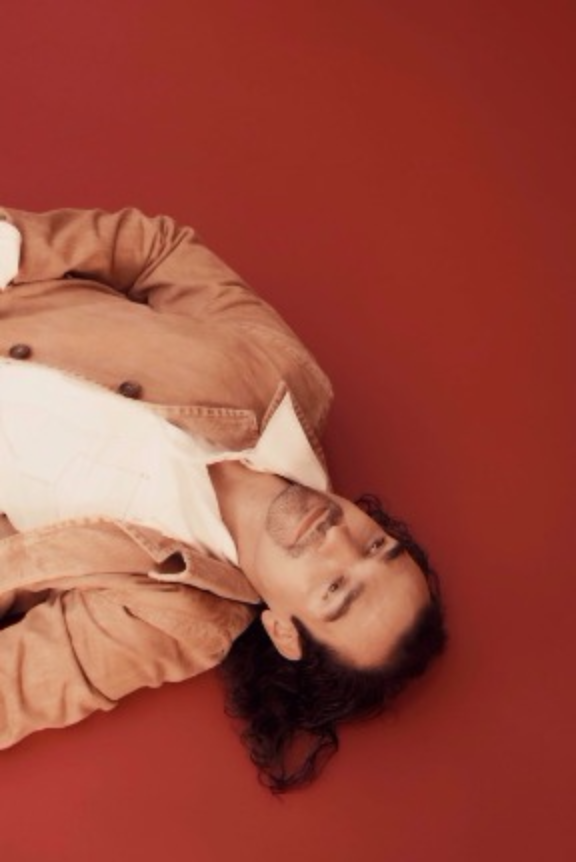
HAMILTON
Only 19 but my mind is older
These New York City streets get colder,
I shoulder
Ev’ry burden, ev’ry disadvantage
I have learned to manage, I don’t have
a gun to brandish I walk these streets famished The plan is to fan this spark into a flame
But damn, it’s getting dark, so let me spell out the name
“I was always cast in roles that fit me, and had nothing to do with my ethnicity, so I found myself playing a lot of leading men in scene work and class assignments,” Javi said. “I found that I could transcend all that and still portray these characters with absolute integrity, fullness, and richness.”
Most actors in Javi’s position – talented, handsome, and Latino – would graduate into professional theater facing down a long line of ensemble tracks and stints as a Shark in West Side Story. But Javi, encouraged by his family and buoyed by faith in his talent, never cosigned the industry’s bullshit assertion that a gay Latino man couldn’t be a leading man, even if it meant turning down a paycheck.
“I'm happy to say 'No' to something because it's beneath me, and it's beneath me to play a stereotype,” Javi said. The problem isn’t the roles – Hamilton is positive proof of that – but the people filling them, for whom Javi has little patience.
“You should be better at writing, you should be better at casting, and it's not on me – it's on you,” he said, of writers and casting directors who see Javi’s résumé the makings of a drug dealer on an episode of Law & Order. “Maybe it was a chip on my shoulder, but that's exactly how I walked into every situation. I have a lot to offer, and if you can't see it – Bye, where's my next audition?”
Javi, who put himself through NYU, knows what it is to work and knows that there’s more integrity in bussing tables than in taking a role that reduces his skills.
“I worked a 40-hour workweek on two part-time jobs, I always had 18 credits a semester, I was always in a show – I knew how to work hard,” Javi said. “It did not scare me to turn down an acting job and go back to my restaurant or work four other jobs to pay the bills. I knew how to make that work.”
Even after his first starring role – replacing Lin-Manuel Miranda as Usnavi in In The Heights – Javi had trouble finding the right work, putting that work ethic into practice. “When I wouldn't get hired for things, I went back to a restaurant,” he said proudly. “And did people recognize me when I went to seat them at their table? ‘Ohmigod, were you Usnavi in In The Heights? ‘I sure was! Right this way.’”
“There's no shame in wanting to put food on my table and pay my rent – I was gonna do whatever I had to do, and that was it, and it was going to be according to my integrity and my worth,” Javi said emphatically. “I'm worthy to be cast in these roles, and I'm going to keep fighting until I'm cast in these roles.”
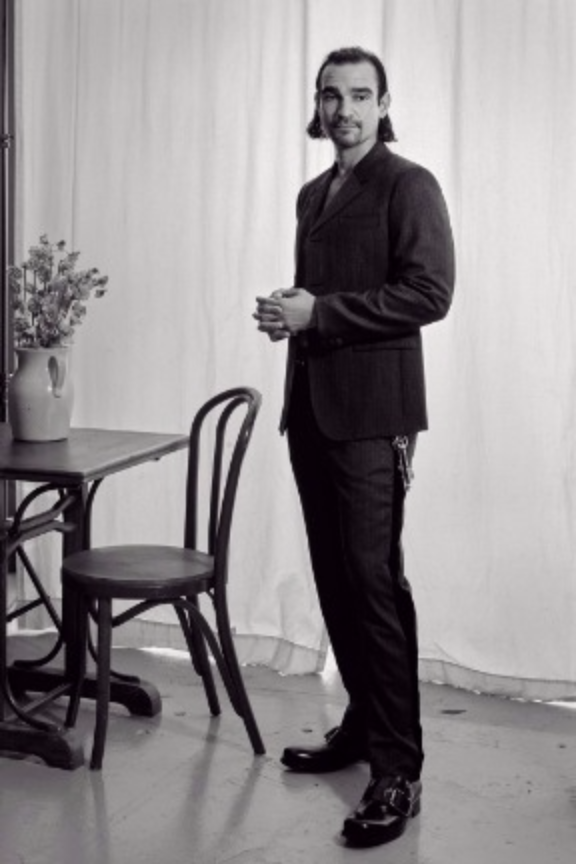
HAMILTON
Hey yo, I’m just like my country
I’m young, scrappy, and hungry
And I’m not throwing away my shot!
Then there was the other consideration: how much of his personal life would remain personal? Even on ostensibly queer-friendly Broadway, openly gay actors are more likely to play the funny friend than the leading man, and the choice to come out has long-reaching career ramifications – doubly so for minority actors. Javi saw the issue as one of integrity.
“I decided in 2005, three years after being diagnosed with HIV, and absolutely sickened by the hypocrisy that I was seeing in the gay community regarding HIV, that I was going to live my life completely open, and own every aspect of who I was, and no one was going to be able to hold anything over me to make me feel small or bad,” Javi said. “That's who I am – that's who I am, and that's what I'm bringing to the table. If you don't want me at your table, I'll go find another one.”
Fear of losing out on casting because of his sexuality or HIV status was countered by the support of Javi’s family and friends. They said, ‘We love you, no matter what – we love you.’
And if these people in my family, who I loved and admired, could say that to me and give me that love, the problem was not with me, the problem was with someone else.”
That support went from abstract to dead-real after Javi’s diagnosis.
“On my worst of days – and I mean where I had allergic reactions, hives, and pustules covering my back, in the dead-heat of summer I'm wearing a long-sleeve shirt ’cause my skin is covered with an allergic reaction to medication – I had friends I could go to when I couldn't even look at myself in a mirror.”
“It's that exchange with people that reminded me I was still worth something, and it was worth fighting whatever I had to fight,” Javi said, growing emotional. “It was worth it because these people believed in me and loved me, and this was not going to be permanent. This allergic reaction was gonna pass, this depression was gonna pass, this anger was gonna pass. And they helped me find the strength for that.”
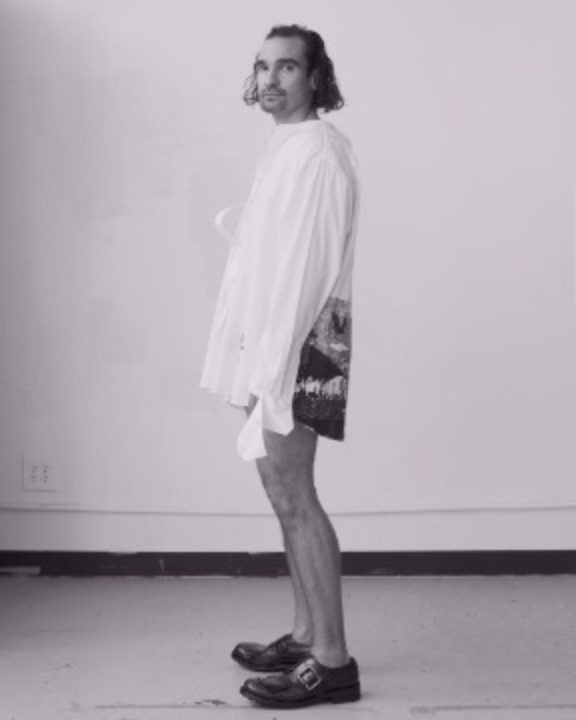
HAMILTON
I’m past patiently waitin’. I’m passionately
Smashin’ every expectation
Every action’s an act of creation!
I’m laughin’ in the face of casualties
and sorrow
For the first time, I’m thinkin’ past tomorrow
After this came Javi’s biggest break: getting cast as Miranda’s alternate in Hamilton, the story of how a bastard, orphan son-of-a-whore and a Scotsman dropped in the middle of a forgotten spot in the Caribbean by providence, impoverished in squalor, grew up to be a hero and a scholar. (It’s also about the founding of the National Bank, which is much more exciting than you think it is.) Javi performed once a week on Sunday matinees, waiting in the wings during the seven other performances every week in case he was needed to take over at the last minute. Miranda, a famous workhorse, seldom gave Javi the opportunity, although he did perform in the title role for President Obama during one of Miranda’s off days, an opportunity Javi called a “whoa” moment.
Although Miranda is unquestionably the show’s godhead, inspired to write the show he would eventually headline by Ron Chernow’s 2004 biography of the nation’s first Secretary of the Treasury, Javi was with Hamilton almost from its conception, participating in nearly every workshop and reading of a song cycle called Hamilton Mixtape that would eventually become the biggest Broadway show in 20 seasons. Ownership over the character of Alexander Hamilton – the “young, scrappy, and hungry”
immigrant who rose to the apex of American political power before dying in a duel with Vice President Aaron Burr – is shared, Javi said, not just between himself and Miranda but with every member of the show’s creative team.
“I was allowed to make it my own, but I was also in the room to help marry my choices to Lin's, as well,” Javi said. “It's absolutely extraordinary to have that kind of trust with another artist. I'll get into the trenches with Lin any day, any time, for anything. It's that kind of absolute trust.
“I still marvel at the kind of relationship that Lin and I have – it's extraordinary, and I've never shared that kind of trust with someone, as far as the creative process,” Javi said. “Two people can't just do that out of nowhere, out of thin air – you can’t just put two actors together and say, ‘Share this role’ – that's not gonna happen. It really has to be invested in and nurtured.”
And then, at the moment of his greatest success as an actor, Javi was dealt a body blow: he was diagnosed with cancer. Javi, who had cleared hurdles with every step since he left East New York, was afraid for the first time.
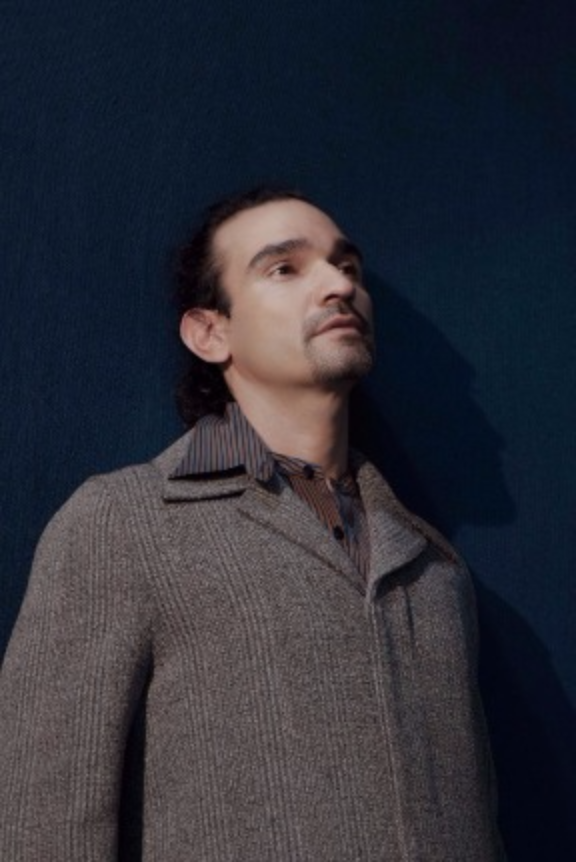
HAMILTON
We won the war
What was it all for?
“‘Jarring’ is so minimal a word to describe what it felt like. It derailed me in every way,” Javi said. “I consider myself someone who doesn't get scared very often, of anything. And I know what fear is now, after that.”
He underwent surgery and radiation treatments, missing months of performances while Hamilton graduated from hit Broadway show to bonafide cultural phenomenon, his spot as Miranda’s alternate held for him as he fought cancer with his family at his side. His parents were both cancer survivors diagnosed six months apart, and Javi gave up work at the time to be nearer to them. They and his older brother David were instrumental in Javi’s return to health and to the stage.
“My family loved me so much and supported me so much,” he said. “That was where I fit in. That was the safest place I could be.”
With their encouragement, and that of castmates who organized food runs when he was too weakened from radiation treatments to leave his apartment, Javi went into remission – then started chomping at the bit to return to Hamilton.
“I knew it was within my power and my ability to go back to the show. It was a question of
‘How,’ and it was a question of ‘When?’” Javi said. “I had to treat it like I would treat anything, and just say, ‘What does today feel like?’”
His determination to get back to playing Alexander Hamilton was occasionally an obstacle in itself, one that had to be tempered by members of the show’s cast and crew who gave Javi one job: to get well first.
“I get so stubborn, and so über-focused, that the blinders come on and I want to get to the prize and accomplish it. I just wanted to get my body back in shape and my endurance back to peak level, and I wanted to be back in the show, yesterday,” Javi said.
But “there's something to be said for being stubborn, sometimes,” Javi said, pointing to his successful return to the Richard Rodgers Theatre just three months after his diagnosis.
“I was so uncertain walking into that first performance as to whether or not I was gonna have the breath control or the stamina, in spite of the fact that I had been back to the gym and I'd proven to myself, outside of the theater, that my body was ready to do this. I was uncertain – but with the amount of support that I had, always focusing on the fact that I knew I could do it, that was enough for me to say, ‘This is possible.’”
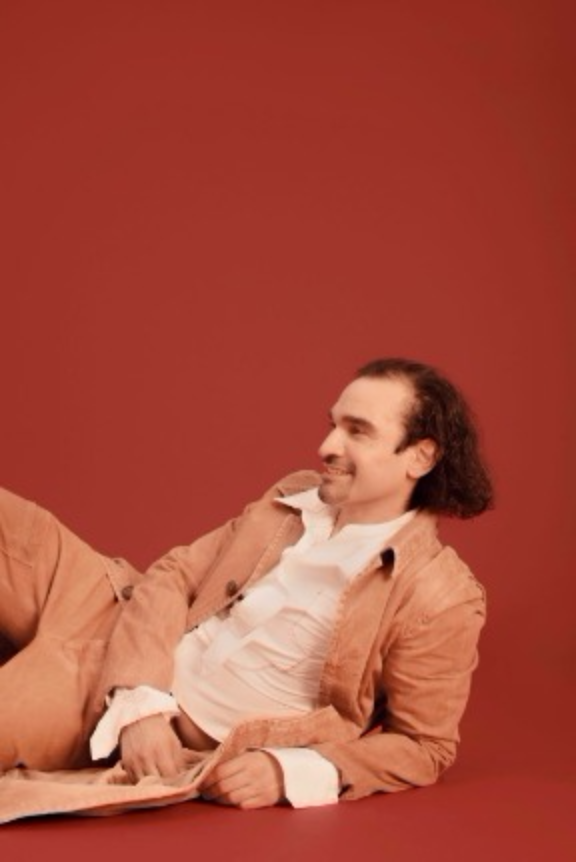
HAMILTON
When you got skin in the game, you stay
in the game
But you don’t get a win unless you play
in the game
Oh, you get love for it. You get hate for it
You get nothing if you...
HAMILTON AND COMPANY
Wait for it, wait for it, wait!
In remission, Javi took over for Miranda fulltime, stepping into the brightest spotlight on the Great White Way to rave reviews for Javi’s seductive, sensuous iteration of the title role. The good looks and magnetic stage presence that pegged Javi as a leading man at NYU prompted infamously captious New York Times theater critic Ben Brantley to call him “the Sexy Hamilton,” an appellation the actor takes as more than just encouragement to up his reps at the gym.
“I love it. Not because of anything that has to do with Hamilton – I love it for the fact that I am very out and open about my story,” Javi said. In an industry where being gay, being a person of color, being HIV-positive are seen as disqualifications for sex-symbol status, Javi sees the #SexyOnSundays phenomenon as proof that an artist’s integrity can transcend the small-mindedness of both the queer and theater communities
“That says a lot about where audiences are and people are, in general, to still consider me ‘The Sexy Hamilton.’ That's a very powerful combination of things. It helps inspire other people living with whatever other health conditions that they're going through, to say, 'Yeah, you are sexy. You are someone. You do matter. You have power. You're not just your illness. You're not just a thing.'”
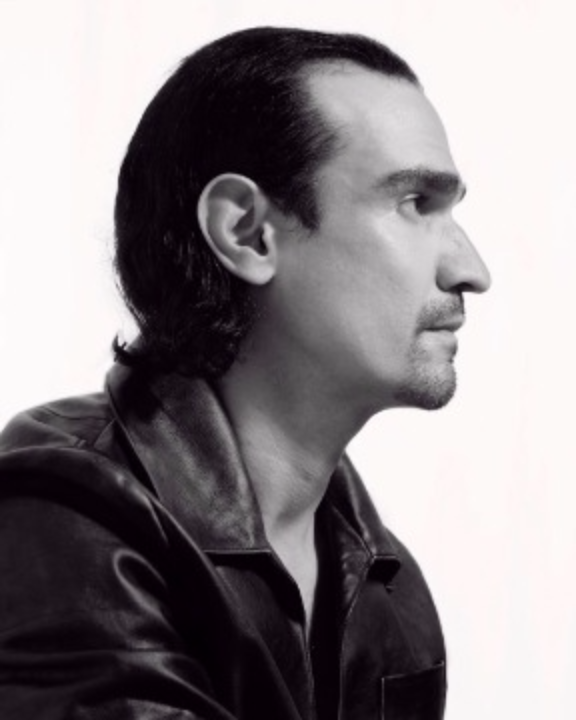
HAMILTON
America, you great unfinished symphony,
you sent for me
You let me make a difference
A place where even orphan immigrants
Can leave their fingerprints
With tickets to the Broadway production sold out into next year, Javi plans on his tenure as Alexander Hamilton to be equally resilient. “I'm gonna be there a good long time,” Javi said with assurance, calling Hamilton “a way to help someone else maybe embrace parts of themselves” that are hidden from view.
“He's such a flawed character – he's neither good nor bad, and I’m hoping in every performance that holding up that mirror to an audience is allowing an audience member to say, ‘I'm capable of both good and bad, too, and that's okay.’”.
A large part of Hamilton’s phenomenal success has been due to its use of art forms long derided as inferior – rap, hip-hop, R&B – to convey the rich, complicated, occasionally contradictory story of America’s creation. The end result is the articulation of the young immigrant voices that shaped the country’s future in the musical language most popular with America’s youth. There are 3,522 lines spread out over Hamilton’s 46 songs, (minus the unrecorded third reprise of “The Story of Tonight” that many purists don’t consider a song proper), each of them pushing forward the story of a young man – and an even younger country – that braved known obstacles and unexpected calamities to reach a more perfect union.
Asked which of those 3,522 lines he connects with the most, Javi let out a long whistle.
“Holy moly,” he said, taking a beat.
“I recently hit a point with all my health issues I’ve faced where I really felt at peace,” he said, after a moment.
“So when I say in the show, 'I imagine death so much, it feels more like a memory,' my answer, every time is 'Yes.' It couldn't be more true. That's truth.” •
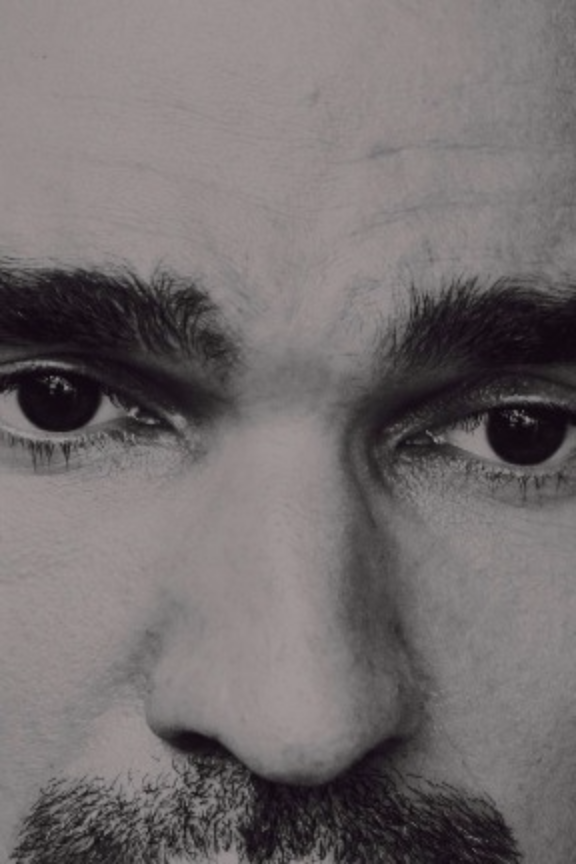
HAMILTON
I imagine death so much it feels more
like a memory
When’s it gonna get me?
In my sleep? Seven feet ahead of me?
If I see it comin’, do I run or do I let it be?
Is it like a beat without a melody?
See, I never thought I’d live past twenty
Where I come from some get half as many
Ask anybody why we livin’ fast and we
laugh, reach for a flask
We have to make this moment last,
that’s plenty
Scott Bixby is a reporter for The Guardian in New York, where he writes about politics and UFOs. Stalk him @scottbix
